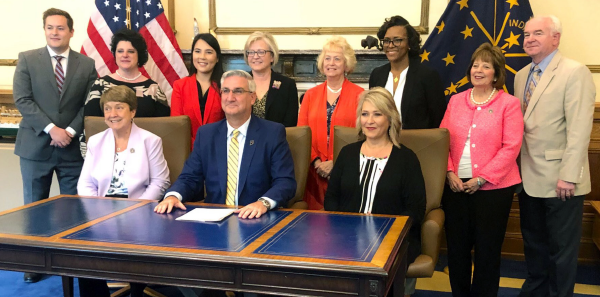
In most states, minors who are pregnant can consent for their own care. But as I learned when I was an intern at Indiana University, Indiana was, at that time, one of 14 states that did not allow female minors consent over their medical care by virtue of being pregnant. Their medical care could only be consented to by their parents or guardian, with exceptions for emergent situations.
Explore This Issue
ACEP Now: Vol 38 – No 08 – August 2019This first came to my attention when I encountered a nulliparous patient I treated at our county hospital who was under the age of 18. She was screaming in pain, just hours into what would be a lengthy labor course. She just wanted someone to make the pain stop. I innocently asked why she couldn’t just have an epidural like other laboring women on the floor. With a dumbfounded look, the OB residents informed me that—of course—she could not have an epidural because she was a minor and her parents were not at bedside to consent for the procedure. In just 24 hours, she would have full consent over her own infant’s medical care. But in this moment, she couldn’t even consent for her own. It was absurd.
From that moment, I became determined to do something. I wanted to make sure that no more minor women would be denied the choice of an epidural, the most common form of labor analgesia, nor access to any other pregnancy-related care for that matter. So I decided I was going to try to change the law.1
Long Process to a Law
Fortunately, I was already an alternate trustee of my state medical association. At our annual convention in fall 2018, I brought forward a resolution to the House of Delegates asking the association to pursue this legislative change. While I knew that Indiana was not a bastion of liberal policy, I did not realize just what I had done.
After my resolution passed by a large majority, physicians who were interested in helping (but who felt they could not publicly speak on the issue) slipped me torn pieces of paper with their contact information. One physician even emailed my department chair.
After the resolution passed, the association carried on the bulk of the work. We were able to find a state senator who was willing to author the bill, Sen. Jean Leising, a former nurse. The first stop for the bill was the senate’s Health and Provider Services Committee.
I was given the opportunity to testify before the committee. I was genuinely surprised by the concerns of the senators. The proposed law gave pregnant women ages 16 and 17 the ability to consent to their own medical care but only if their parents were not available after attempted contact. Self-consent was only to be granted for 60 days following the birth. As some predicted, many senators were troubled about intruding on parental rights, but they were also concerned that the young women might request a postpartum intrauterine contraceptive device that would provide long-term contraception that their parents had not consented to and which would extend beyond the 60-day consent period without parental involvement. I was skillfully aided in my testimony by the state American College of Obstetrics and Gynecology chapter, who assured the senators that reliable contraception would prevent a risky repeat pregnancy within too short an interval and that was both desirable and essential to combating our state’s high infant and maternal mortality rates.
We hit some other obstacles along the way, including HIPAA concerns about alerting parents when their children were pregnant. Ultimately though, the bill was passed unanimously by both the state house of representatives and state senate, before finally being signed by the governor on April 29, 2019. Being present for the signing and being presented with the governor’s signing pen are memories from residency I will cherish forever.
Pages: 1 2 | Single Page





No Responses to “EM Doc Works with Indiana Lawmakers to Help Young Pregnant Patients”